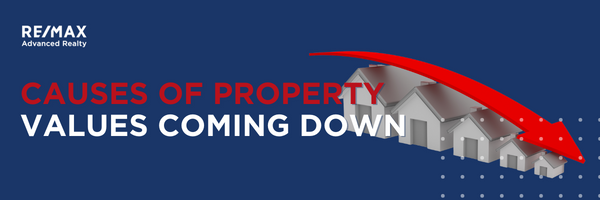The worth of the property you're using as security is determined by a property appraisal, which is a crucial stage in the application process for a home loan.
Although it may seem far off in the current real estate market, vendors were worried about falling property values not so long ago. This could strain the economy, and a rapid shift in interest rates or other external factors could result in a decline in property valuations.
Like any free market, property prices are impacted by several macroeconomic variables and are subject to regular price increases and decreases.
Why Valuation Matters?
The loan-to-value ratio, which is used by lenders to determine how much money they're willing to extend, is based on the valuation of the property (LVR).
Your LVR will also be impacted by the size of your deposit because lenders determine your LVR by dividing the amount you must borrow by the value of the property. Your LVR will be reduced if you have a larger deposit because you will need to borrow less money. Lenders may view applications with LVRs of 80% or greater as having a higher risk, which in turn raises the interest rates they may provide.
You can have problems getting the loan you've requested if your property's valuation is lower than you anticipated. In some circumstances, it can also imply that there is an increased danger of losing your deposit or other assets, although there are steps you can take to minimize this risk.
HOW TO RAISE THE VALUE OF YOUR HOME
Your home can be improved to increase its value. Your home's worth might increase, for instance, if you repaint it or buy new appliances. You can also make your house appear more attractive by adding some well-placed plants, a new mailbox, external lighting, or shutters. A home's worth will also be affected by more significant upgrades you've made, according to property appraisers.
Click To Read: How To Transform Your Home On A Budget

WHAT AFFECTS PROPERTY VALUES
The size, age, and location of your home are a few factors that directly determine the value of your property. The housing market, natural disasters or climate change, and changes in your neighborhood are the three primary factors that could harm the value of your house. Racial and class bias can also have an impact on property appraisal.
MARKET CAUSES PROPERTY VALUES COMING DOWN
Real estate market conditions as well as regional supply and demand have a big impact on property values.
Supply And Demand
Property values typically rise when demand for homes outpaces present supply. Homes typically sell for less when the supply outpaces the demand. For instance, the fact that population growth in the United States has not kept up with new residential construction over the past 40 years is one of the reasons why home prices are so high in 2022.
Additionally, Freddie Mac's research indicates that by the end of 2020, there were 3.8 million fewer homes available in the country than there were in 1970.
Mortgage Interest Rates
The value of your property may be impacted by current mortgage interest rates. In times of low mortgage interest, purchasers can spend more on a home. Their monthly mortgage payments will be reduced with lower interest rates, and they will pay less overall for the loan.
Potential buyers' capacity to afford a home falls as interest rates rise. They can't afford to spend as much on the initial purchase price because the higher interest rates will result in higher monthly mortgage payments and a longer loan term. Higher loan rates typically result in lower home prices because fewer purchasers will have the money to spend.
Climate Change and Natural Disasters
The value of your property may potentially decline due to Mother Nature. Natural disasters that strike suddenly and violently and the more gradual effects of climate change are the two main ways in which this can occur.
Natural Catastrophes
A natural disaster can significantly lower your home's value if it causes damage. These factors make natural disasters capable of causing significant economic harm. When Hurricane Katrina hit the Gulf Coast in 2005, it killed over 2,000 people and damaged more than $161 billion worth of property.
Changing Climate
Although more gradually, the value of your property may also decrease due to the changing environment. This may occur in a variety of ways.
For instance, global weather patterns are altering. Although your area may now see more flooding, your home may not have needed flood insurance when you bought it. You will need flood insurance because the maps of the flood zones will change. If a single-family property is zoned into a floodplain, it normally loses two percent of its value.
Your Neighborhood May Cause Property Values Coming Down
Your property's worth may potentially be at risk from your neighbors. It's simple to imagine scenarios in which this might be true; for example, if your neighborhood appears disorganized, an appraiser may drop their estimate of your property. However, there are some subtler ways that your neighbors' actions could reduce the value of your home.
Foreclosures
Local foreclosures may have a detrimental impact on the value of your home. According to studies, local foreclosures might decrease the value of your home by up to 10%. The loss of property value is normally less than 10% and doesn't continue longer than two years, although you often have to be very close to the foreclosed home or residences.
Frequently Asked Questions (FAQs)
Why does a house have a higher value?
Location, size, and condition are just a few of the numerous aspects that determine how much a property is worth. You have some control over some of these things and some you do not. Painting a room or adding a new roof are just a couple of the many ways you can raise the value of your home.
In the coming year, will home prices decline?
The National Association of Realtors forecasted that home prices would rise by 11% in 2022 and by 2% in 2023. However, there are several reasons why a particular property's value can decline, even if the average value of properties rises.

